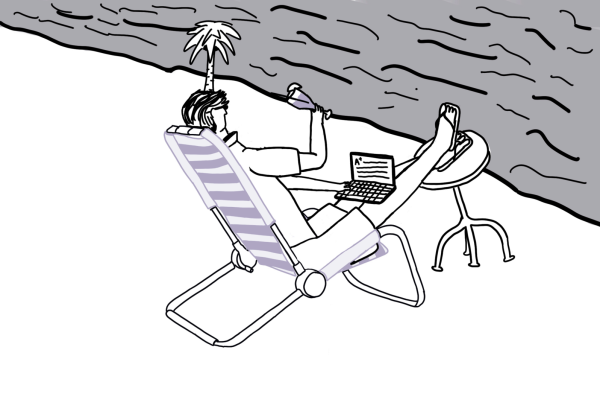As of 2018, up to one in four students at elite colleges were considered legally disabled due to mental health issues, learning differences or physical disabilities. With a doctor’s diagnosis, many of these students are entitled to extra time on tests and individualized educational accommodations. This number has seen a significant spike in recent years, increasing by 5% from 2014 to 2018. According to a study conducted by Boston College, the number of students with a 504 plan, a form of learning accommodation agreement, more than doubled between the 2009 and 2015 school years, with most of the growth in wealthier districts.
More affluent areas have seen much higher rates of special education plans in recent years. The inequity of the special education system that we often see in higher-income areas, opens the door to possibilities for misuse and abuse of the system, like we saw on a national scale in the Varsity Blues case.

Section 504 of the Rehabilitation Act protects students with mental and physical disabilities by requiring schools to honor a student’s 504 plan. The 504 plan protects and aids students with learning differences like dyslexia, dyscalculia and Attention Deficit Hyperactivity Disorder (ADHD), as well as students with serious health issues like epilepsy or visual and auditory limitations. Section 504 is a necessary law that can offer students extra time on standardized tests, personal aid and more. However, these plans are much easier to come by for more wealthy students because they can afford to see private specialists. Students with a 504 can receive time and a half or even double time on in-class and standardized tests, which is very appealing to any ambitious student and their parents, regardless of need.
Although all school districts are legally required to offer free testing, it’s a much more selective process and those officials often have huge caseloads with few resources available. An assessment from a private specialist can cost anywhere from a few hundred dollars to almost $15,000 if paid for out-of-pocket. This puts wealthy families at a huge advantage if they seek learning accommodations for their children, which could lead to manipulation or overuse of diagnostic testing.
On the other end of the spectrum, students of lower socioeconomic status are much less likely to be given a 504 plan. According to a study conducted by students at the University of Vermont, children with ADHD who fall below the federal poverty level were the least likely to receive a 504 when compared to other socioeconomic ranks. This means that an affluent community with much more access to learning accommodations has the potential to abuse and overuse them.
An article written by graduate students Raquel Moniz and Maria Lewis investigated misuse and inequitable access to 504 plans for the National Education Policy Center at the University of Boulder, Colorado.
“Federal disability law allows affluent parents, families and students to leverage their power and privilege to pursue accommodations when needed—and even when they’re not,” Lewis and Muniz wrote. It’s no secret that inequity and the corruption of wealth plague every aspect of our lives, and from that, we cannot exclude educational institutions.
Still, it’s tough to prove that any individual with a 504 or IEP doesn’t deserve it. Just because people are served more frequently for learning disabilities in more affluent areas doesn’t inherently make those disabilities invalid. For kids with extreme testing anxiety, dyslexia, reading and writing hindrances, or even more severe disabilities, a 504 plan is essential and deserves to be honored and respected by both teachers and peers. Misuse of these plans is relatively uncommon, as they are more often used under the correct circumstances. Yet, that doesn’t make the special education system free of issues. Significant racial and socioeconomic inequity still plagues departments. Even if the majority of learning plans are necessary, the fact remains that students with fewer means are underserved.
More attention to the misuse of learning plans is required to mend the gap of notable education inequality. It is the most disadvantaged students that require these resources the most. More state funding needs to be allocated to the special education departments in public schools so that free diagnostic testing, as well as more trained specialists, are available to students. Abuse of special education plans also requires further investigation so that schools can closely monitor who truly needs accommodations most.






